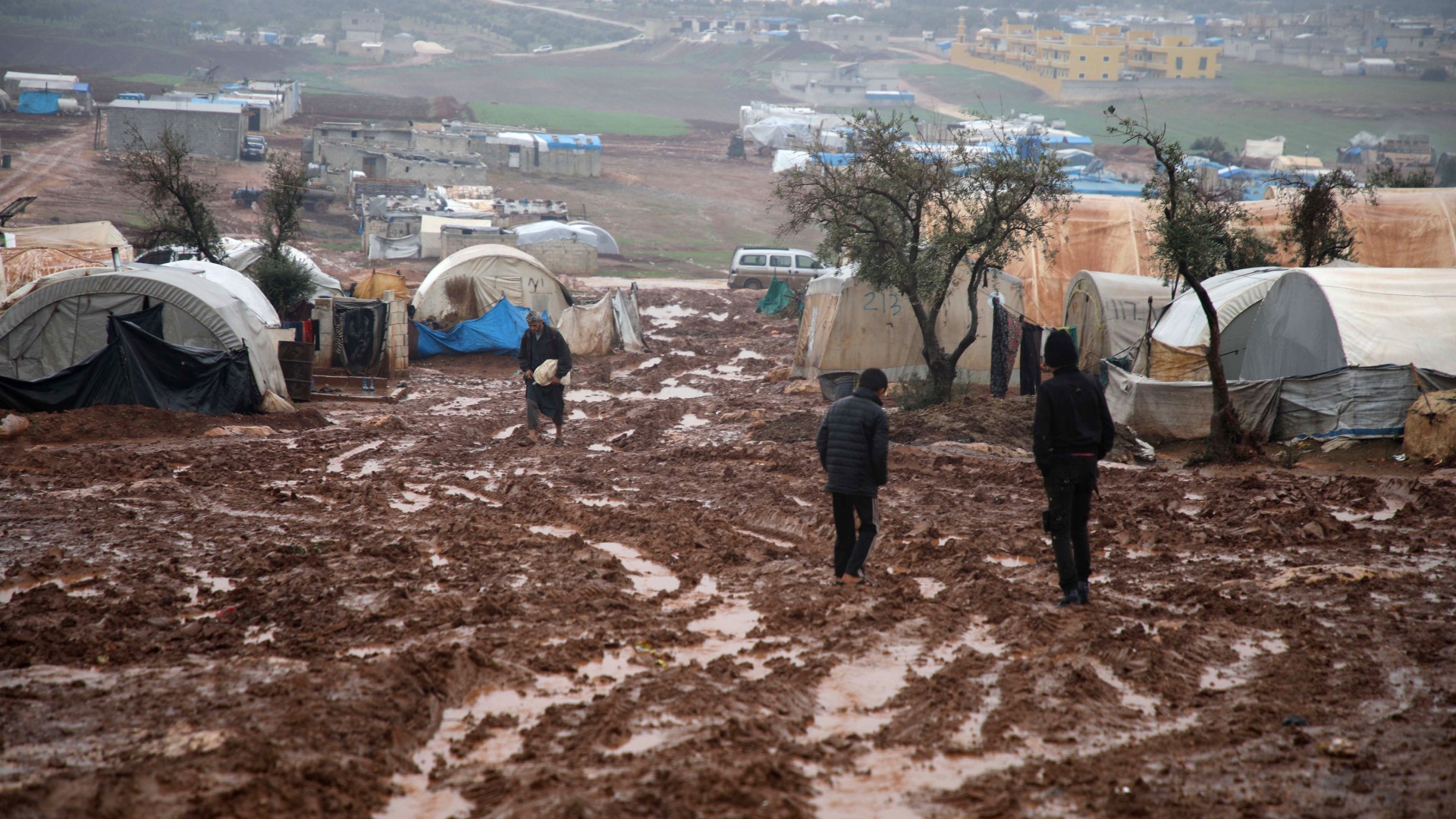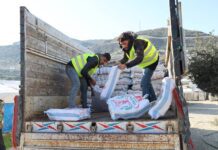
In northwestern Syria, over two million displaced people are bracing for another punishing winter in camps that lack even basic essentials. As international aid wanes, the camps face shortages of food, water, and heating fuel, leaving millions vulnerable to life-threatening conditions. Humanitarian groups warn that without urgent intervention, the humanitarian crisis is likely to escalate as temperatures drop and costs for necessities rise.
The Syrian Response Coordinators Team (SRC), an organization monitoring the crisis in northern Syria, reported that more than two million displaced individuals are unable to meet their daily needs, as food and fuel prices have surged, widening the gap between urgent needs and available aid. The group expressed that conditions have reached an intolerable level for civilians in “open spaces” who are forced to wait for humanitarian or political solutions to satisfy the Assad regime and its ally, Russia. “There is no alternative except the return of the displaced to their cities and villages,” a spokesperson for the SRC said, appealing to the international community to increase humanitarian assistance and find permanent solutions.
The situation is particularly dire across the 1,508 camps scattered throughout northwestern Syria, sheltering more than two million displaced people, over half of whom are children. Many camps lack essential services such as potable water, sewage systems, roads, schools, and health centers. With winter approaching, these deficiencies pose severe risks to camp residents, particularly children and the elderly.
According to a report by the UN Office for the Coordination of Humanitarian Affairs (OCHA), aid deliveries from the UN have also decreased significantly this year. From January to October, only 498 aid trucks entered the liberated areas in northwestern Syria. This marks a sharp drop from last year, when nearly 2,000 trucks passed through the same routes from Turkey, delivering much-needed resources. The decline followed a controversial agreement in August that granted the Assad regime authority over aid distribution to areas administered by revolutionary institutions, complicating access for international organizations.
Conditions in northern Syria are expected to worsen as temperatures fall. The Assistance Coordination Unit, a local aid organization, recorded 42 cold-related deaths in the camps last winter, a number that may increase given the rising number of displaced persons and the shortage of humanitarian supplies this season. “The camps lack sufficient heating, blankets, and winter clothing, and tent replacements are urgently needed,” the group stated. Roads leading to these camps also require upgrades to remain passable during harsh winter conditions.
OCHA’s latest winter response plan seeks to bridge the aid gap. In a November announcement, the organization allocated $25 million under the “Cross-Border Humanitarian Fund” to ensure winter provisions reach the most vulnerable populations. However, with only 10% of this winter relief plan funded and half of the health facilities in the area out of service, the response remains inadequate. “We are gravely concerned,” said an OCHA spokesman, noting that over five million people in the region face potential flooding, snowstorms, and widespread respiratory illnesses due to cold exposure and unsanitary conditions in camps.
In Idlib, a separate crisis is unfolding as water supplies have dwindled, pushing the cost of water beyond what many residents can afford. After a key water pumping project in the area ceased operations, residents have been forced to rely on costly water delivered by tankers. “We’re paying 240 Turkish liras for 2,000 liters of water, which isn’t enough for even a week,” said Ahmad Daboul, a resident of Idlib. According to the humanitarian group REACH, 52% of households in Idlib report difficulties accessing water, with 70% facing insufficient water storage capacity.
Waves of new displaced from Israeli attacks on Lebanon or relentless aggression from the Assad regime and his allies, raise further concerns. Humanitarian agencies warn that continued displacements risk forcing refugees into already overcrowded camps or conflict-ridden areas. Northwestern Syria, already hosting 5.16 million people, of whom 4.27 million need humanitarian assistance, cannot safely or effectively absorb additional influxes of displaced.
International aid organizations continue to appeal for increased global support to address the worsening humanitarian crisis. The United Nations Cross-Border Humanitarian Fund emphasized the urgency of providing basic services to vulnerable populations, particularly for people with disabilities, women, and children. “The funding gap is severe, and without swift intervention, basic services and winter assistance will remain out of reach for millions,” said the organization in a statement. For now, the people of northwestern Syria remain in a precarious situation, hoping for international assistance that can bring not only immediate relief but also long-term stability.








